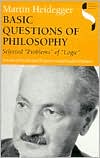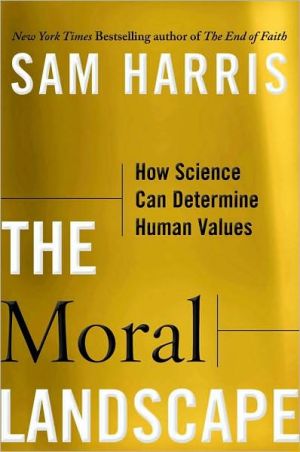Basic Questions Of Philosophy, Vol. 1
First published in German in 1984 as volume 45 of Martin Heidegger’s collected works, this book is the first English translation of a lecture course he presented at the University of Freiburg in 1937–1938. Heidegger’s task here is to reassert the question of the essence of truth, not as a "problem" or as a matter of "logic," but precisely as a genuine philosophical question, in fact the one basic question of philosophy. Thus, this course is about the essence of truth and the essence of...
Search in google:
"... well suited to the task of beckoning the novice onto the path of Heidegger's most arduous thought.... a useful introduction to the thought of one of our most original thinkers." — International Studies in Philosophy"... a helpful elucidation of the truth as [Heidegger] sees it.... This excellent translation will be of great value to students of Heidegger's thought." — Library JournalIn this lecture course presented in 1937-38, Heidegger's task is to reassert the question of the essence of truth, not as a problem of logic, but precisely as the basic question of philosophy. These lectures were given at the time that Heidegger was composing his second magnum opus, Beiträge zur Philosophie, and provide the single best introduction to that complex and crucial text. Library Journal The concept of truth plays a vital role in Heidegger's thought, and Basic Questions, a lecture course that Heidegger gave in 1937-38, offers a helpful elucidation of truth as he sees it. Frequently, philosophers think of truth as statements that match reality: ``the lights are on in the lecture hall'' is true if the lights are in fact on there. For Heidegger, this seeming commonplace is absurd. Truth in his view is the openness or unconcealment of being, a position that he traces to the pre-Socratics. He deploys his immense learning to trace the eclipse of the pre-Socratic notion throughout the history of philosophy by the doctrine of truth as correspondence. This excellent translation will be of great value to students of Heidegger's thought.-David Gordon, Bowling Green State Univ., Ohio
Translators' ForewordPreparatory Part: The Essence of Philosophy and the Question of Truth1Ch. 1Preliminary Interpretation of the Essence of Philosophy3Ch. 2The Question of Truth as a Basic Question8Main Part: Foundational Issues in the Question of Truth25Ch. 1The Basic Question of the Essence of Truth as a Historical Reflection27Ch. 2The Question of the Truth (Essentiality) of the Essence53Ch. 3The Laying of the Ground as the Foundation for Grasping an Essence69Ch. 4The Necessity of the Question of the Essence of Truth, on the Basis of the Beginning of the History of Truth95Ch. 5The Need and the Necessity of the First Beginning and the Need and the Necessity of an Other Way to Question and to Begin131Appendices: The Question of Truth167Editor's Afterword189
\ International Studies in Philosophy"Well suited to the task of beckoning the novice onto the path of Heidegger’s most arduous thought.... a useful introduction to the thought of one of our most original thinkers." —International Studies in Philosophy\ \ \ \ \ Library JournalThe concept of truth plays a vital role in Heidegger's thought, and Basic Questions, a lecture course that Heidegger gave in 1937-38, offers a helpful elucidation of truth as he sees it. Frequently, philosophers think of truth as statements that match reality: ``the lights are on in the lecture hall'' is true if the lights are in fact on there. For Heidegger, this seeming commonplace is absurd. Truth in his view is the openness or unconcealment of being, a position that he traces to the pre-Socratics. He deploys his immense learning to trace the eclipse of the pre-Socratic notion throughout the history of philosophy by the doctrine of truth as correspondence. This excellent translation will be of great value to students of Heidegger's thought.-David Gordon, Bowling Green State Univ., Ohio\ \








